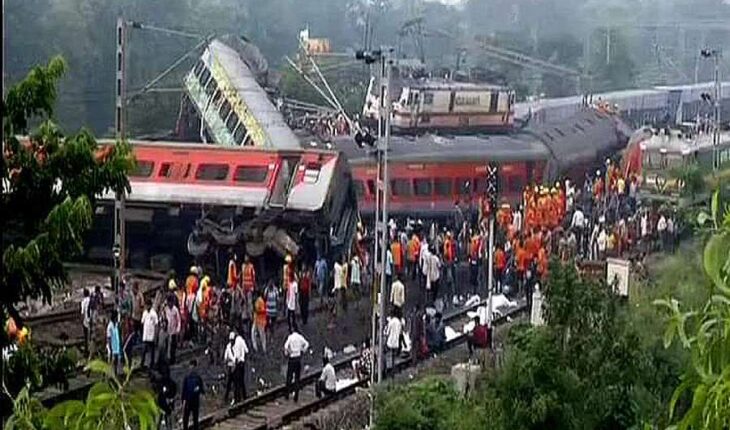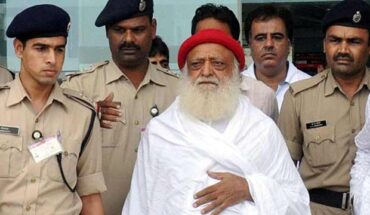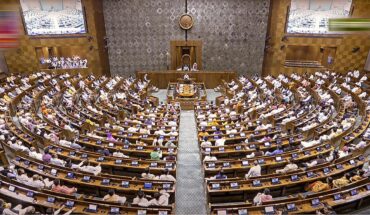It will cover all angles including sabotage
Bhubaneswar: As the CBI probe into the June 2 Bahanaga triple train tragedy continues the investigating agency is expected to look into multiple dimensions of the mishap including whether KAVACH, the ace security system of the railways, could have averted the mishap that claimed 288 lives officially and left more than 1100 injured. The inquiry was handed over to CBI on the recommendation of the Railway Board as there is a strong suspicion about the possibility of sabotage.
Neither the Shalimar-Coromandel Express nor the Yeshwantpur-Howrah Express, which suffered severe damage in the accident with multiple bogies getting derailed after Coromandel hit a stationary goods train at Bahanaga Bazar railway station leading to a chain reaction, were fitted with KAVACH. This is an indigenously developed Automatic Train Protection (ATP) system by the Research Design and Standards Organisation (RDSO) in collaboration with the Indian industry.
KAVACH is meant to provide protection by preventing trains to pass the signal at Red (which marks danger) and avoid collisions. It activates the train’s braking system automatically if the driver fails to control the train as per speed restrictions. In addition, it prevents the collision between two locomotives equipped with functional Kavach systems. The system also sends out SoS messages during emergencies.
However, neither the Shalimar-Chennai Coromandel Express nor the Yeshwanthpur-Howrah Express were fitted with KAVACH-TACS. The Kavach system project is yet to be implemented on the Howrah-Kharagpur-Chennai line which these trains were running on. However, sources said the probe agency has been told by railway officials that even KAVACH would not have averted the accident as the reaction time in the case the accident was too short. Since an obstruction in the form of the stationary goods train came in front of Coromandel Express, running at a speed of around 128 kms per hour, so suddenly it was difficult to avoid the mishap. “ In these circumstances perhaps no technology in the world can prevent an accident,” railway officials are believed to have told the probe agency.
Sources said CBI is looking closely into the sabotage angle as railway minister Ashwini Vaishnaw has indicated that the railway board itself is not ruling out such a possibility. The minister also said that the root cause of the accident, which in all probability was caused by the failure of the interlocking system, has been identified and officials responsible for the error have also been identified.
The Central Bureau of Investigation (CBI), which took over the probe a few days ago, has registered a case on the request of the ministry of railways. The agency, among other things, will look into different angles including human error or deliberate attempts to cause the accident. The Odisha government, which has also given its consent for the probe, would be cooperating with the agency officials.
On the other hand, railway authorities had expanded their probe and questioned the assistant station master and drivers of the two trains to ascertain how the accident, one of the worst in nearly three decades, occurred. Preliminary investigation had hinted at the possibility of a change in the interlocking system and point machine, an intricate system of interconnected safety checks designed to keep trains from crossing each other’s path. But now the entire focus is on the CBI probe.
The accident at Bahanaga Bazar station in Balasore district occurred around 6:56pm on June 2 when the Coromandel Express rammed into a goods train carrying iron ore. Since the goods train was heavy with freight the impact of the collision led to the derailment of around 15 bogies of Coromandel Express which fell on the parallel track. A few of these coaches hit the last two bogies of the Howrah-bound Yesvantpur Express, which was passing by on the opposite line at the same time. It was the worst train mishap in the country since 1995.
Sources said CBI investigators and forensic experts have picked up evidence from the accident site, documents from the railway ministry, and also examined some of the victims, railway staff, rescuers and the local administration apart from talking to eyewitnesses. It is also taking the help of technical experts to find out exactly how the mishap occurred and what and who was at fault.
On the other hand even as the CBI intensified its probe into the tragedy, opposition parties have stepped up the demand for an inquiry by a a Special Investigation Team (SIT). Around 12 Opposition parties including CPI (M), RJD, Samajwadi Party, Aap recently submitted a memorandum addressed to the Prime Minister in this regard. However, the CBI continues with its work and has examined, among other things, the call records, WhatsApp calls and social media usage of the railway staff. The schools where bodies were kept will remain closed due to summer vacation.
A 10-member CBI team along with some Central Forensic experts has already visited the accident spot to collect evidence. It had a good look at both the main line and loop line at Bahanaga Bazar railway station. Members of the team also visited the signal room and held discussions with the officials there. The outcome of the investigation will be keenly awaited.




